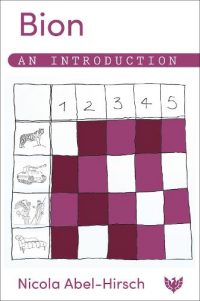Bion’s life spanned key events in the twentieth century. Born in India in 1897, he came to boarding school in England aged 8 and at 18 fought in the tanks in World War One. He trained as a doctor between the wars and, in his World War Two work for the army, he was an innovator. After the war, he became a patient of Melanie Klein, qualified as a psychoanalyst, and was part of an extraordinary period in psychoanalysis of work with psychotic mechanisms in patients. In the late 1950s, he identified the configuration container/contained as being at the heart of human development. He looked outside of psychoanalysis to philosophers, scientists, mathematicians, and even theo-mystical thinkers. His work evolved radically throughout the 1960s and, at age 70 when many would be thinking of slowing down, he emigrated to California and began to travel internationally, giving lectures and supervisions across three continents. After Freud, Bion appears to be the most quoted psychoanalyst of our time and this book provides the opportunity, even for those familiar with his work, to gain insight into its sheer breadth, showcased so brilliantly in this slim volume.
As author of Bion: 365 Quotes, Nicola Abel-Hirsch’s immersion in Bion’s vast œuvre has enabled a comprehensive introduction to Bion and his work. Her lightness of touch, whilst retaining the necessary depth, makes it a joy to read. Bion and his work can be somewhat enigmatic but Abel-Hirsch’s understanding offers the ideal introduction to the man and his work.

